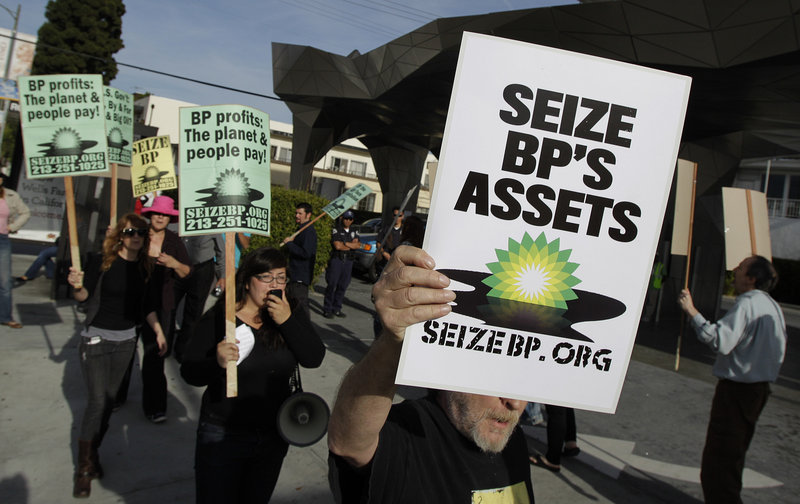WASHINGTON — Engineers launched their latest effort to curb the crude oil gushing from a busted underwater well in the Gulf of Mexico Thursday as lawmakers on Capitol Hill wrangled over liability limits for oil companies and continued to probe the mishaps and regulatory failures that caused the spill.
The Interior Department’s Minerals Management Service, which regulates oil rigs, came under more scrutiny as congressional investigators scheduled hearings to find out why the federal agency never completed rules that would have required additional controls on blowout preventers — the safety equipment that failed to stop the spill.
Staffers from the House of Representatives Natural Resources Committee said they learned from the testimony of Mike Saucier, an MMS regional supervisor, that new rules had been proposed.
Saucier said the agency prepared but never completed regulations in 2001, the first year of George W. Bush’s presidency, that would have required secondary control systems for blowout preventers.
The devices have been at the heart of the inquiry into what caused the explosion that killed 11 and continues to spew oil into the Gulf of Mexico.
The House committee also will be examining the agency’s ties to the oil industry and whether a cozy relationship kept it from enacting tougher regulations. McClatchy reported last week that nearly 100 standards set by the American Petroleum Institute are included in the MMS’ offshore operating regulations.
Meanwhile, efforts on Capitol Hill to raise the liability cap for oil companies from $75 million to $10 billion ran into a roadblock when Sen. Lisa Murkowski, R-Alaska, objected.
Murkowski said she supports lifting the cap, but contended the $10 billion figure would prevent smaller, independent companies from drilling on the Outer Continental Shelf.
Sen. Bob Menendez, D-N.J., mocked the idea of independent companies as “mom and pop” oil companies and questioned why smaller companies shouldn’t be held responsible in the event of a catastrophe.
Menendez said that he and other lawmakers plan to try to push the bill again.
Six West Coast senators and Florida representative also introduced separate bills that together would have the effect of banning offshore drilling.
BP engineers said their best chance to control the underwater oil leak now rests with a six-inch-wide tube that they’d try to insert into a jagged 21-inch pipe spewing oil into the Gulf.
BP crews were to insert the tube, which is surrounded by a rubber seal and attached to a tanker at the surface, sometime Thursday night, said BP spokesman Mark Proegler.
Copy the Story Link
Send questions/comments to the editors.



Success. Please wait for the page to reload. If the page does not reload within 5 seconds, please refresh the page.
Enter your email and password to access comments.
Hi, to comment on stories you must . This profile is in addition to your subscription and website login.
Already have a commenting profile? .
Invalid username/password.
Please check your email to confirm and complete your registration.
Only subscribers are eligible to post comments. Please subscribe or login first for digital access. Here’s why.
Use the form below to reset your password. When you've submitted your account email, we will send an email with a reset code.